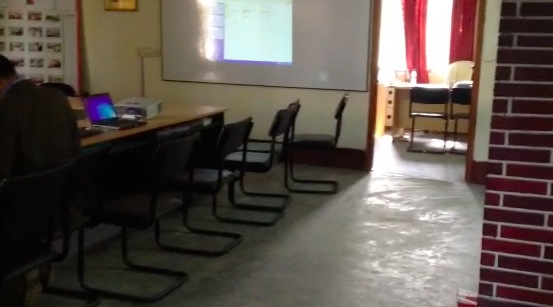Observational Study Launches
In October 2000, HEALS staff began the time-consuming and labor-intensive process of recruiting participants to the study. They began by addressing concerns about drawing blood, taking urine samples and interactions with women in the socially conservative Muslim community. In a country with an adult literacy rate only slightly above 50 percent, explanatory pamphlets were inadequate. Instead, they met potential participants face-to-face to explain what the researchers were doing, why they needed the biological samples, and how the results would help in the future prevention and treatment of arsenicosis. [16]
In 2001, Ahsan and Parvez realized that the daily commute for staff from Dhaka to Araihazar was too much. While the distance was short, traffic was chronically congested and the 25 km could take nearly two hours to travel. Project director Hussain introduced them to a local epidemiologist who owned land in Araihazar. The landowner made them an intriguing offer. If HEALS would help fund the construction of a three-story building housing a clinic, labs and pharmacy, he would then rent the building back to the researchers for the duration of the project. Ahsan and Parvez accepted.

HEALS field office, Araihazar
By 2007, HEALS boasted a four-building campus in Araihazar, which included a health clinic for study participants and their families. The clinic, which provided basic health services, went a long way toward cementing villagers trust in the HEALS project.
Leadership change . But by 2003, to Ahsan and Parvezs disappointment, relations with onsite project director Hussain, as well as with NIPSOM, had deteriorated. Hussain had done a fine job of hiring and managing staff, but the Columbia directors suspected him of unethical conduct. He was fired in February. In September, Ahsan prevailed upon veteran public health administrator Dr. Tariqul Islam to replace Hussain. Islam, who in addition to his medical degree held a masters in public health, had spent 13 years with Bangladesh NGO Gonoshasthaya Kendra and another three years at CARE International working on reproductive health projects. Ahsan was convinced that Islam was the type of reliable, charismatic, confidence-inspiring leader the program needed. Islam was hesitant, but agreedon certain conditions. He recalls:
I told themI am a public health program implementer. If you [want me to conduct] science and research, I cannot help you. If you agree to teach me research, then I can. [17]
Dr. Tariqul Islam describes how Dr. Ahsan brought him onboard.
[16] UNICEF country statistics, Bangladesh; UNICEF statistics. See: http://www.unicef.org/infobycountry/bangladesh_bangladesh_statistics.html .
[17] Lundberg interview with Tariqul Islam on February 4, 2012, in Araihazar, Narayongonj, Bangladesh. All further quotes from Islam, unless otherwise attributed, are from this interview.